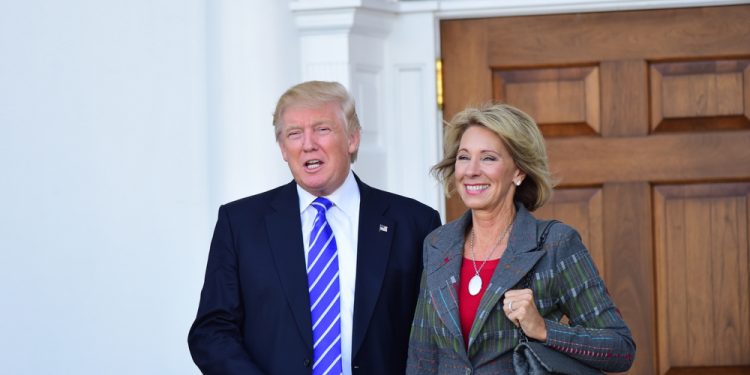
Today the paper is out w/ a piece implying that that Education Secretary nominee Besty DeVos opposed an A-F grading scale for charter schools, despite the fact that her education reform group actually supported this measure
December 13, 2016

Today the paper is out w/ a piece implying that that Education Secretary nominee Besty DeVos opposed an A-F grading scale for charter schools, despite the fact that her education reform group actually supported this measure
December 13, 2016
Another day, another example of fake news from The New York Times. Today the liberal paper is out with a hit piece implying that that Education Secretary nominee Besty DeVos opposed an A-F grading scale for charter schools that her education reform group actually supported.
Indeed, the story omits the key fact that the group DeVos founded in 2001, the Great Lakes Education Project (GLEP), endorsed the A-F accountability scale in a letter it co-signed this past June:
We support a new statewide accountability system based on A-F letter-grading to provide clear and consistent information for parents and schools on academic performance.
By ignoring the facts, The New York Times gives readers the false impression that DeVos opposes any oversight on charter schools, when that is obviously not the case, as Politico reported earlier this week.
Recently, some of the state’s most ardent school-choice supporters, including DeVos, backed some level of accountability standards. Earlier this year, state lawmakers took some steps to beef up oversight of charters — steps largely supported by DeVos. They included a measure requiring automatic closure of charters than rank in the bottom 5 percent of schools for three consecutive years.
As Ingrid Jacques, the Detroit News’ deputy editorial-page editor wrote over the weekend in the Wall Street Journal, while critics attack charters, the reality shows that it is the failing traditional public schools that have not been held accountable in Michigan:
Michigan’s charter model has also been criticized for its purported lack of accountability. Critics claim that schools aren’t held to high standards. But more than 100 charters have been closed in the last 20 years, both for academic and financial reasons. Not a single traditional public school in the state has ever closed because of poor performance.